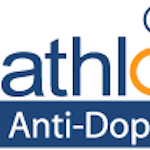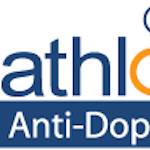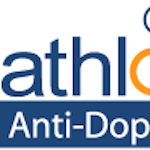Anti-Doping Updates August 29, 2012
The Medicines and Healthcare products Regulatory Agency (MHRA) recently made the decision in the United Kingdom to ban sports supplement Jack3D, believed to contain WADA-banned substance DMAA. According to the press release, DMAA has been responsible for 137 doping violations worldwide. Please continue reading the press release issued by the MHRA in relation to the banned product.
MHRA Press Release:
“The Medicines and Healthcare products Regulatory Agency (MHRA) has ruled that the popular DMAA containing sports supplement Jack3D is an unlicensed medicinal product and that it and all other DMAA containing products need to be removed from the UK market amid concerns of potential risks to public safety.
DMAA is most commonly used as a workout aid or weight-loss supplement and can have a physiological effect on the body narrowing the arteries and raising the heart rate; this has been linked to suspected adverse drug reactions worldwide, ranging from shortness of breath to heart attacks. It has also been linked to at least one fatality.
The MHRA has already issued eight urgent notices instructing retailers to remove the product and any other DMAA containing products from sale. The MHRA has recently taken action against a number of products presented as sports supplements that fall within the definition of a medicinal product because of the potent herbal ingredients they contained.
DMAA is also banned under the prohibited list of banned substances by the World Anti-Doping Agency and has been responsible for 137 doping violations worldwide.
David Carter, the Manager of the MHRA’s Medicines Borderline Section said:
“People need to be aware when choosing their sports supplements. These products may claim to increase performance but contain powerful ingredients which can have serious side-effects.
“We recommend that people only use approved products and speak to a qualified medical practitioner if they have any concerns about any supplements they may be taking.”
Graham Arthur, Director of Legal at UK Anti-Doping said:
“This is a significant step forward for all competitive athletes as methylhexaneamine (DMAA) is a banned substance ‘in-competition’ that frequently appears in over the counter and internet bought products but not clearly on the label. Athletes who use sports supplements need to choose reputable manufacturers who can justify their claims with scientific evidence, and have their products screened to minimise the risk of testing positive for a substance on the World Anti-Doping Agency’s Prohibited List. UK Anti-Doping continues to work closely with the MHRA to protect the health of athletes and to prevent doping in sport.”
Notes to Editor:
1. The MHRA is the government agency responsible for ensuring that medicines and medical devices work, and are acceptably safe. No product is risk-free. Underpinning all our work lie robust and fact-based judgements to ensure that the benefits to patients and the public justify the risks. We keep watch over medicines and devices, and take any necessary action to protect the public promptly if there is a problem. We encourage everyone – the public and healthcare professionals as well as the industry – to tell us about any problems with a medicine or medical device, so that we can investigate and take any necessary action. www.mhra.gov.uk
2. DMAA has been linked to severe side-effects. Australia’s Therapeutic Goods Association (TGA) issued a warning on the substance following a state coroner’s verdict that DMAA has resulted in the death of a man who had consumed DMAA purchased online.
The TGA decision to ban DMAA (external link)
3. Relevant companies are advised to remove Jack3D from sale and to take similar action for other products containing DMAA, which is also is known by the names Methylhexanamine, methylhexanenamine, dimethylamylamine, 4-methyl-2-hexanamine,4-methyl-2-hexylamine, 2-amino-4-methylhexane,1,3-dimethylamylamine, 1,3-dimethylpentylamine,Geranamine, Geranium oil and Cranesbill.”
If you have any questions about ITU’s anti-doping programme, please contact leslie.buchanan@triathlon.org.
Related articles
-
Anti-Doping Updates April 25, 2012
08:21 - 25 Apr, 2012 -
Anti-Doping Update on April 3, 2012
06:01 - 03 Apr, 2012 -
Latest Anti-Doping Updates from WADA
08:46 - 30 Nov, 2011









